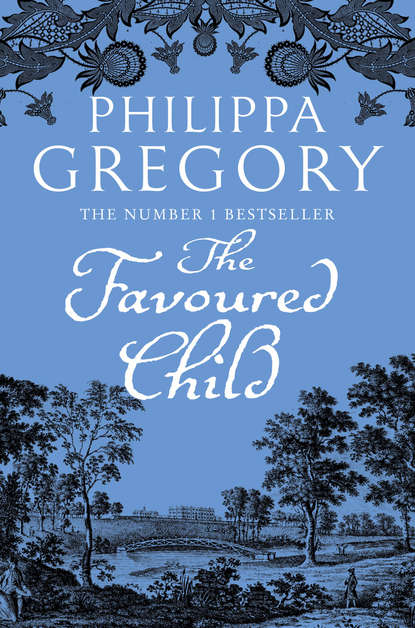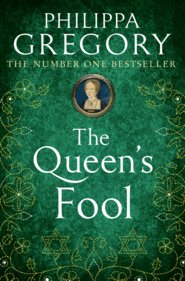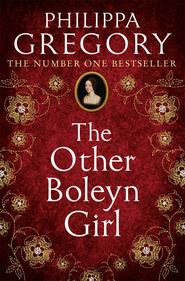По всем вопросам обращайтесь на: info@litportal.ru
(©) 2003-2025.
✖
The Favoured Child
Настройки чтения
Размер шрифта
Высота строк
Поля
‘Do you think he will send the money?’ I asked, my concern for Richard making me press her.
‘I doubt it very much,’ she said levelly. ‘There are more important bills to pay first, Julia. There are the Lacey creditors to repay. And we have to save for Richard’s schooling. There is not a lot of money to spare.’
Indeed there was not. Mrs Gough and Stride worked for love, loyalty and a pittance paid monthly in arrears. The food on the table was game from the Havering estate or fish from the Fenny. The vegetables were grown in the kitchen garden, the fruit came from Grandmama at Havering Hall and wine was a rare luxury. My dresses were hand-me-downs from my distant Havering cousins, and Richard’s shirt collars were turned and turned and turned again until there was neither shirt nor collar left. Mama would accept clothes and food from her mama, my Grandmama Havering. But she never applied to her for money. She was too proud. And anyway the Havering estate, our nearest neighbour, was itself derelict through neglect.
‘Go to sleep, Julia,’ Mama said softly, taking up her candle and going to the door.
‘Goodnight,’ I said and obediently shut my eyes. But I lay half wakeful, listening as the house settled for the night. I heard Mama’s footsteps in her room and the creak of her bed as she sprang in quickly, for the floorboards were icy to bare feet; the night-time noises of Stride bolting the back door, checking the front door – as if there were anything to steal! – and then his heavy tread up the back stairs to his bedroom at the top of the house.
Then the outside noises: a trailing creeper tapping at a window-pane, the distant call of a barn owl flying low across a dark field and away in the woods the abrupt bark of a dog fox. I imagined myself, high as the owl, flying over the sleeping fields, seeing below me the huddle of cottages that is Acre village, with no lights showing, like a pirate ship in a restless sea, seeing the breast of the common behind the village with the sandy white tracks luminous in the darkness and a herd of deer silent as deep-sea fish, winding across it. Then, if I were an owl, I would fly to the west wall of the hall of Wideacre, which is the only one left standing. If I were an owl I would fly to the gable head of it, where the proud roof timbers once rested, where it is scorched and blackened by the fire that burned out the Laceys, that wrecked the house and the family. I would sit there and look with round wide eyes at the desolate fields and the woods growing wild and call, ‘Whoo! Whooo! Whooo!’ for the waste and the folly and the loss of the land.
I knew, even then, that there is a balance of needs on a land like ours. The masters take so much, the men take so much, and they both keep the poor. The land has its rights too: even fields must rest. My Aunt Beatrice was once the greatest farmer for miles around, but somehow, and no one would ever tell me quite how, it all went bad. When my Aunt Beatrice died and my papa died in the same night, the night of the fire, the Laceys were already ruined.
After that day nothing went right on Wideacre: not in the village, where they were as dirty as gypsies and as poor, and not for the Laceys. Mama and I were the only survivors of the great Lacey family, and we went in darned gowns and had no carriage. Worse than that, for Mama, we had no power. Oh, not in the way that many landowners have power. I don’t think she would ever have missed the power to order men as if they were all servants. But when things were wrong in the village, she had no power to intervene. No one could help Acre now it was in the hands of the Poor Law authorities. Not even Dr Pearce, who came riding up the drive with his fat bay cob actually sweating at the neck and withers one hot day in summer when I was ten. He asked to see Mama urgently and came into the parlour on Stride’s heels. I was seated by the open window, trying to get some air while I transposed a score Richard wanted to sing. Richard was idly fingering chords on the pianoforte. Mama was darning.
‘Forgive this intrusion, Lady Lacey,’ Dr Pearce said, his breath coming in pants from his hurried ride. ‘There are dreadful doings in Acre. They are taking the children.’
‘What?’ Mama said. She cast one fearful glance towards the window, and I shrank too, afraid – like a child – of being ‘taken’, whatever that meant.
Dr Pearce stripped off his riding gloves, and then, uselessly, put them back on again. ‘It’s the parish overseer from Chichester,’ he said, half stammering in his haste. ‘He has an order from some manufacturing gentlemen in the north. They want able-bodied pauper children for apprenticeships.’
Mama nodded.
Dr Pearce pulled his glove off one hand. ‘It is a slavery!’ he exclaimed. ‘Lady Lacey! They are taking them without consent! Any child whose parents cannot support them can be taken. That is all of Acre, for none of them are in regular work. They have a great carriage and they are going through Acre and taking the pick of the healthiest largest children. They had chosen three when I came here to you.’
I looked up at my mama’s face. She had risen to stand by the empty hearth. Her face was so white she looked sallow in the bright summer light. ‘Why did you come to me?’ she asked, her voice low.
Dr Pearce pulled off his other glove and slapped them in his hand. ‘I thought you would know what to do!’ he said. ‘I thought you would stop them!’
Mama made a slow gesture with one stiff hand, which took in the bare parlour, the chipped table, the old pianoforte and the single rug before the fire. ‘I am a woman of neither means nor influence,’ she said slowly.
‘You are the squire’s widow!’ Dr Pearce exclaimed.
Mama grimaced. ‘And you are the parson,’ she said bitterly. ‘But neither of us is able to stop what is happening down there.’
‘Your father? Lord Havering?’ Dr Pearce suggested.
Mama sat down in her chair again. ‘He says it is a village of outlaws,’ she said. ‘He would not lift a hand if the whole village were to be moved. Besides, he believes in these new factories. He has invested in them.’
Dr Pearce slumped down into a chair without invitation and rolled his gloves into a tight ball. ‘We do nothing?’ he asked helplessly.
My mama lifted her work to the light and started again to sew. ‘I can do nothing to stop this,’ she said. ‘Is it being done legally?’
‘Legally, yes!’ Dr Pearce said. ‘But morally?’
‘Then I can do nothing,’ Mama said again. ‘Perhaps you could ensure that the parents have the addresses of where the children are sent? So that they can bring them home when times improve.’
‘When times improve,’ Dr Pearce repeated. He got to his feet.
Mama looked up at him. Her face was stony, but her eyes were filled with tears. ‘When times improve,’ she said.
He took her hand and bowed over it as though she were a great lady receiving a courtier. ‘I’ll go back, then,’ he said. ‘The mood in the village is going to be very ugly. But I’ll do what I can.’
‘Will they listen to you?’ Mama asked.
Dr Pearce pulled his gloves on, and for the first time that day he smiled his sweet helpless smile. ‘I doubt it,’ he said wryly. ‘They have never done so before. But I will do what I can.’
He was right in thinking there was little he could do. The quicker parents had hidden their children as soon as the carriage had come into the village. In the end only six children were taken, taken away to work in the mills in the north. The roundsman said that they would serve a proper apprenticeship and be able to send home good wages. They would have an education and a religious upbringing. They would probably be home in a few years, a credit to their parents and to their employers. Acre heard that out in silence, and let the children go.
My grandmother took us to Chichester Cathedral in her carriage every Sunday for a month. Mama did not want to go to Acre church. But then Dr Pearce wrote her a note to say that there was no cause for concern in Acre, we could come and go quite safely. It was as it had been before.
Only I noticed that it was not as it had been before.
The children who sometimes used to come and peep through our front gate came no more. The girls who would bob a curtsy to Mama as we went down the aisle from church no longer looked at her or grinned impertinently at me. The whole village became as quiet as if every child had been stolen away by some malevolent Pied Piper. And every child learned to run like the wind up to the common and hide if they saw a strange coach come down the lane.
There were only six children lost, but it was not as it had been before.
It stayed hot all that summer. Hot, and quiet. Mama was ill with headaches and weariness; she trusted us to go no further than the common and the Wideacre estate and let us roam. Not for the first time I asked her where the money had gone, and why the hall had been burned, and why she – who was all powerful in my little world – could do nothing in the wider world of Acre and Chichester. And not for the first time her face took on that frozen look which both Richard and I had learned to dread, and she said softly, ‘Not now, darling. I will explain it all to you when you are old enough to understand it. But I will not tell you now.’
And with that Richard and I were content. We had only the casual curiosity of children. Having seen the hall in ruins and the land idle all our lives, we could hardly imagine a time when it had been whole any more than we could imagine a time when we were not there. Left to ourselves for that hot summer, we walked, and lazed, and dreamed, and played, and talked.
‘I wish I were a Lacey,’ Richard said to me, as we lay sprawled in the bracken of the common, looking up at the blue sky rippled with white clouds.
‘Why?’ I asked, as idle as he. I had a grass stalk between my thumbs and I was blowing and blowing, producing the most painful shrieks from it.
‘To be a Lacey of Wideacre,’ he said. ‘To be known as the owner of Wideacre. To have been landowners for so many years that no one could ever challenge you …’
I dropped my grass stalk and rolled over beside him, my head butting companionably against his skinny chest. ‘When we are married, you can take my name,’ I offered. ‘Then you’ll be a Lacey, if you like.’
‘Yes,’ he said, pleased. ‘And we can rebuild the hall and make it all just as it was. And I shall be the squire as my mama wanted me to be.’
I nodded. ‘Let’s go to the hall on our way home,’ I said.
I pulled Richard to his feet and we went in single file down the narrow sandy path that leads to the back of Wideacre woods from the common. There were gaps all around the smooth perimeter of the park wall, and rabbits, deer and foxes and the two of us could pass freely from common land to parkland, as if there were no ownership of land or game at all.
The poachers from Acre could go where they wished. Bellings, the man who used to be gamekeeper, was as bad as any of them. But they avoided the ruined hall. It was a place still owned exclusively by the Laceys. I went there with Richard, but apart from us the roofless half-walls echoed only to the sound of the Lacey ghosts.
‘Let’s be Saracens,’ said Richard with the abruptness of a child, and we both broke stick swords from the hazel bushes and held them before us. Richard made a quick gesture and we dropped to our bellies in a well-practised dive as we sighted the house. Wriggling like worms we came through the overgrown kitchen garden – meadowsweet and gypsy’s lace as tall as a jungle and brambles everywhere – and then Richard gave the order to charge and we thundered around the back of the stable block and tumbled into the yard with a triumphant shout.
The grass was thick between the cobbles, the pump rusted with its handle up, the water stagnant in the trough beneath the spout.
‘Lacey squires,’ Richard said, changing the game and offering me his arm with a courtly bow. I swept him a curtsy, holding my mud-stained muslin dress wide, and came up with a simper to take his arm. We processed, heads high, around to the front of the house, play-acting the people we should have been.
‘Damned good run with that fox!’ Richard said.
‘Damned good,’ I echoed, as daring as he.
And then we faced the house and ceased the play to look up at it. The house stared blankly at us, its honey-yellow sandstone colour streaked and black with the smoke of that long-ago fire, a buddleia plant, like a plume on a hat, growing from the crumbling wall near the top of the house. When the wooden floors and beams were burned, they crashed down, and the east wall, over the rose garden, collapsed. The façade of the house was still holding, but people came in secret and quarried away at it for the stone. It stared like a sightless giant over the nettles and rose-bay willow-herb in the rose garden and over the paddock, all dry and self-seeded. The great front door was gone, either burned out or stolen for the wood. The terrace, where Mama had taught me to walk, was chipped; and the cracks between the stones sprouted groundsel and dandelions.












